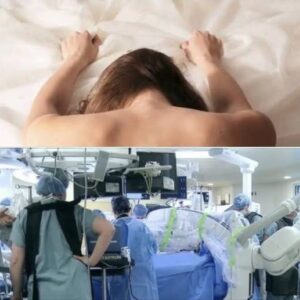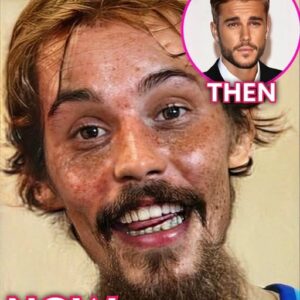During her pregnancy, Adalgisa’s stomach pains became only more severe, and shortly after birth, it was revealed that her daughter carried a rare condition, which is now making headlines worldwide…
Every day, every minute, and every second, a new child is born somewhere in the world. A newborn human being who is encountering the light of day for the very first time. Who hopefully, together with their loved ones, will grow up in a loving home.
But even before Graziely had been welcomed into the world, her mother sensed that she was special – truly special. When mother Adalgisa Soares Alves, who lives in São Luís in north-eastern Brazil, was in the eighth month of her pregnancy, her stomach pains grew increasingly intense.
It would soon be revealed that this was due to a special reason.
When her daughter Graziely entered the world, she was diagnosed with hydrocephalus, commonly known as ”water on the brain”.
This condition involves an abnormally large accumulation of cerebrospinal fluid within the skull, leading to increased pressure and disproportionate growth of the head, as reported by the Daily Mail.
Due to the severe diagnosis, doctors didn’t expect Graziely to survive for long.
They wanted to make sure her Adalgisa was prepared for the worse and suggested that they probably wouldn’t have more than a couple of months together.
Of course, receiving such a tough piece of news was incredibly challenging for Adalgisa, who already had two other children. But over the years, it has become evident that the only ones mistaken about Graziely were indeed the doctors.
This little fighter has defied all odds and will actually turn 30 in 2023.
”’I always hope that she will live [for] many years. She transmits positive energy and I feel a peace that overflows when someone visits her,” Adalgisa says in an interview with Daily Mail.
But due to her condition, Graziely cannot see, speak, or walk. Hydrocephalus is a relatively rare condition in infants, affecting fewer than one in every thousand births. Early diagnosis and appropriate treatment are crucial for ensuring the best possible outcome for affected infants.
Adalgisa takes care of her daughter 24/7 and serves as her assistant. Right now, she’s very reliant on disability payments from the Brazilian government.
”I’m dedicated to Graziely and it makes me happy to see her well cared for, from me and all of our family. I don’t work, I just take care of her — I’m happy to take care of her and it is rewarding when I see her smile,” she says and continues:
”I never lose hope because I am a woman of great faith and I always put God above everything — I pray a lot every day.”
Adalgisa often shares images and clips on her Instagram, revealing the numerous challenges her family faces. With a current count of 11,600 followers, the account has garnered global support for Graziely and her family.
However, amid the outpouring of positivity, occasional negative comments also arise. In those instances, Adalgisa wastes no time in taking a stand.
Being referred to as a ‘giant baby’ at birth doesn’t bother her, as people point out that ‘baby’ carries a positive connotation.
But it’s the derogatory remarks that evoke her sadness and frustration.
”I don’t think it’s cruel because “baby” is an affectionate word, but when they call out her “big head” I feel sad,” she says.
But love conquers all, of course.
A video that has gained significant traction with over 110,000 views showcases Mother Adalgisa feeding her daughter.
“God bless you so much,” one viewer wrote.
“You’re an angel, a beautiful soul, may God bless you always,” penned another.
“This woman is an incredible mother,” a third commenter added.




